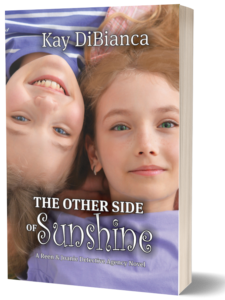
“But words are things, and a small drop of ink,
Falling like dew, upon a thought, produces
That which makes thousands, perhaps millions, think.” — Lord Byron
* * *
I was asked to say a few words at the upcoming Memphis Public Libraries Richard Wright Literary Awards ceremony later this week. The awards contest is for authors who live in and around Memphis, and the ceremony is held in the main library.
I came up with several thoughts, but finally settled on a theme about the power of words. The basic text of the talk is shown below (with the intro, the joke, and the conclusion removed.) I’d be interested to get your thoughts.
* * *
It has been said that the pen is mightier than the sword. Nathaniel Hawthorne famously said that words in a dictionary are innocent and powerless, but “how potent for good and evil they become in the hands of one who knows how to combine them.”
Perhaps the most striking statement about the power of words is in the first book of the Bible, where we read the very first words that God utters when He says, “Let there be light.” I’m not a theologian, but I suspect those words mean more than just the creation of photons. After all, light is frequently used as a metaphor for wisdom, knowledge, and understanding, and those are characteristics that move mankind from ignorance to awareness, and that kind of light is usually conveyed through the power of words.
In this room, there are authors who come from different backgrounds, who write different genres, and who have different stories to tell. And yet, with all our differences, we have one thing in common. We’ve been given the gift of words, and we want those words to shine light into the darker corners of our world. To touch people’s lives, to make them laugh or cry, to make them think, to inspire and challenge our readers.
These are lofty goals. To meet them, our writing needs to achieve a certain level of excellence, but unfortunately, we can’t judge the quality of our own work. For that, we need knowledgeable people to read our stories and give us honest, unbiased feedback. That’s where writing awards contests come into play.
It’s through writing contests like this one that we begin to understand how well our writing stacks up against the work of other authors. Competition is good. It’s an incentive for us to improve, to raise the bar, to make the next book better than the last.
My husband and I have both been fortunate to have won a Richard Wright award, and we believe the Memphis Public Libraries Awards contest is one of best there is. After all, what better award contest could there be than one where the judges are members of a library staff and volunteers who spend much of their lives among books? And what better place to celebrate the accomplishments of a group of writers than in a library?
You’re all finalists in the Richard Wright Literary Award competition. You’ve cleared a major hurdle, and you deserve recognition for your achievement. To be a finalist for a Richard Wright award is not only affirmation about the quality of your work, but it’s also a chance to honor the legacy of Mr. Wright.
Whatever the outcome of the awards, let’s also remember that we’re here to share our journey with our colleagues, to reach out to new writers, and to build the community of authors in Memphis. Congratulations and good luck to all!

* * *
So TKZers: What are your thoughts about the power of the written word? Do you think awards contests are valuable? Unbiased feedback is always welcome.
* * *
 Coming Soon!
Coming Soon!
The Other Side of Sunshine
A Middle Grade Mystery
When spunky ten-year-old Reen learns of a hidden treasure in her quiet university town, she enlists the help of her shy nine-year-old cousin Joanie to help her find the loot. They form the R&J Detective Agency and follow clues through dictionaries, microfiche machines, and all around the campus. But Reen’s arch-nemesis Alicia is looking for the treasure too, and she’s not playing by the rules.




